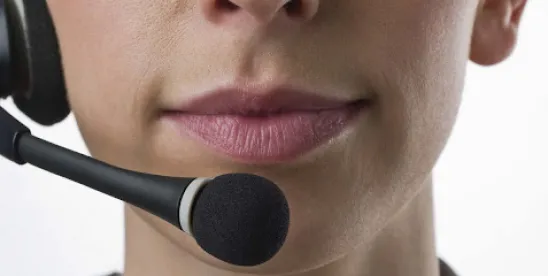TCPAWorld has chronicled and analyzed the newly enacted changes to Florida’s telemarketing statutes, which went into effect on July 1, 2021. Indeed, as most recently reported, the Czar of TCPAWorld has been consulted about helping to “fix” the revised statutes.
Now comes the Enterprise Communications Advocacy Coalition (ECAC) to ask the Federal Communications Commission (FCC) to preempt certain portions of the amended Florida Do-Not Call Act (Fla. Stat. Ann. § 501.059) and the Florida Telemarketing Act (Fla. Stat. Ann. 502.601, et seq.) (collectively, revised Florida laws). The targets of the ECAC’s Petition for Declaratory Ruling (Petition) are the aspects of the revised Florida laws that “relate to interstate telemarketing to the extent that they are more restrictive than” the FCC’s rules and regulations implementing the Telephone Consumer Protection Act (TCPA).
The ECAC, which describes itself as the “only coalition dedicated exclusively to advocacy on behalf of the contact center industry,” previously has sought redress from the FCC on TCPA exemption issues.
For starters, the Petition reminds the FCC that in 2003 the agency observed that “any state regulation of interstate telemarketing calls that differs from our rules almost certainly would conflict with and frustrate the federal scheme and almost certainly would be preempted.” Thus, at the time, the agency provided the opportunity for “any party that believes a state law is inconsistent with section 227 [i.e., the TCPA] or our rules may seek a declaratory ruling from the Commission”.
The ECAC argues that four specific aspects of the revised Florida laws “create a more restrictive environment applicable to interstate telemarketing laws than the TCPA and the TCPA Regulations.” As a result, the ECAC claims “[t]hese provisions frustrate the federal objective of creating uniform national rules and therefore must be preempted.” The four aspects are as follows:
-
Call Time Restrictions – The revised Florida laws (Florida Stat. Ann. §501.616(6)(a)) narrow the permissible calling time window for telephone solicitations – which closes at 9 p.m. under the FCC’s rules – to 8 p.m. The Petition argues that this one hour contraction, “plac[es] … increased compliance costs on telemarketers that make interstate calls to Florida residents and residents of other states” and “frustrates the federal objective of creating national rules.”
-
Call Frequency Limits – The revised Florida laws (Florida Stat. Ann. §501.616(b)) restrict to three the number of “commercial solicitation phone calls” that a telemarketer may make “from any number to any person over a 24-hour period on the same subject matter or issue….” The Petition claims that “[t]his restriction applies similarly to intrastate and interstate calls.” On the other hand, the ECAC notes, “[t]he TCPA regulations do not contain a call frequency limitation.” As a result, this restriction places “an enormous burden on telemarketers that initiate calls on nationwide calling campaigns to track this data.” Further, the Petition asserts, “[t]his call frequency limitation impermissibly infringes telemarketers’ free speech in violation of the First Amendment to the U.S. Constitution.”
-
Caller ID Restrictions – The revised Florida laws (Florida Stat. Ann. §501.616(7)(b) ban commercial telephone solicitors from using technology that “deliberately displays a different caller identification number than the number the call is originating from to conceal the true identity of the caller.” On the other hand, the Petition notes that the FCC’s TCPA regulations “specifically permit the telemarketer to substitute the name of the seller on whose behalf the telemarketing call is placed as well as the seller’s customer service telephone number, provided that a call recipient may call the telephone number provided to make a do-not-call request during regular business hours.” Thus, the revised Florida laws, in this respect, are “expressly at odds with the TCPA regulations.”
-
Automated Equipment/Automatic Telephone Dialing System – The revised Florida laws (Fla. Stat. Ann. §501.059(8)(a)) restrict telephonic sales calls involving an “automated system for the selection or dialing of telephone numbers or playing of a recorded message when a connection is completed to a number….” The ECAC observes there is no definition provided for “automated equipment” – which is not the term actually used in the revised Florida laws (i.e., automated system). Nevertheless, the Petition notes that the TCPA restricts calls initiated with “an automatic telephone dialing system” – a term defined in the TCPA and the FCC’s regulations. ECAC argues that to the extent the undefined term in the revised Florida laws “includes equipment that is not within the definition of automatic telephone dialing system, the statute must be preempted….” (emphasis in original).
Bottom line according to the ECAC: “Florida’s imposition of more restrictive laws contravenes the clear intent of Congress to create uniform national rules, and to ensure the individual privacy rights and public safety interests are balanced with the legitimate interests of telemarketers to engage in commercial speech and trade.”
Stay tuned as TCPAWorld will be following closely. Interestingly, just as an aside, last December, the FCC’s Consumer and Governmental Affairs Bureau dismissed nine (9) long-pending petitions for preemption of state consumer protection requirements, on the belief that “the relief sought in these nine petitions is moot or otherwise no longer relevant.” Two of the nine, by National City Mortgage Co. and TSA Stores, Inc., related to the Florida Do-Not-Call Act.




 />i
/>i

